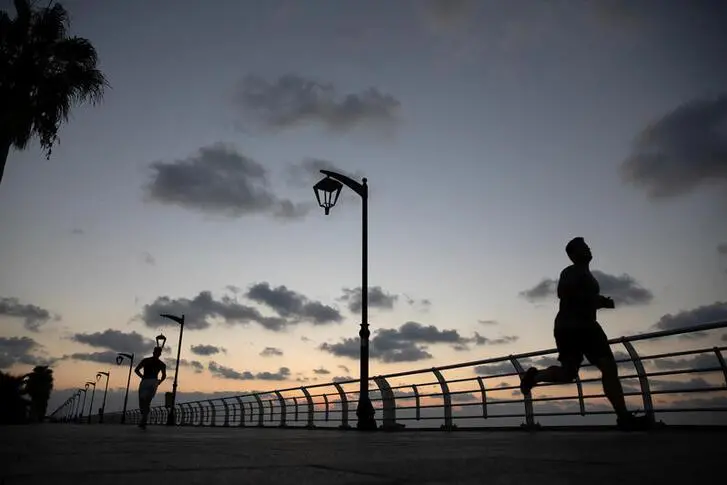PHOTO
BEIRUT - Caretaker Health Minister Hamad Hasan called for a total lockdown of the country as the number of daily coronavirus infections hit record highs on both Friday and Saturday.
“I call for ... all calculations and economic caveats to be dropped, and for there to be a general closure for a period of two weeks to stop the spread,” Hasan told local newspaper Addiyar in comments published Saturday night.
A total of 28,297 COVID-19 cases have been confirmed in Lebanon since February, with a record 779 new cases detected Saturday. The previous high was set a day earlier, with 750 new cases found on Friday.
A total of 10,999 PCR tests came back positive between Sept. 1-19, the vast majority of which were from among the resident population. The test positivity rate among the local population during that period stood at 7.4 percent.
Hasan told Addiyar that the rise in the number of cases was due to a relaxation of coronavirus containment measures, recklessness and a lack of a feeling of responsibility at the individual and societal level toward fighting the virus. He also said that not all state and private institutions had put in place the necessary preventive measures.
A rise in the number of coronavirus infections followed the reopening of the airport at the start of July, but a much larger surge came after the Aug. 4 port explosion.
Several hospitals treating COVID-19 patients were damaged in the blast, and social distancing measures were largely put aside as tens of thousands of volunteers came together in the cleanup and rescue effort.
Caretaker Prime Minister Hassan Diab resigned on Aug. 10 in the wake of the blast and the formation of a new government has hit the rocks because of disputes about a proposal to rotate the sectarian leadership of four key ministries.
Lebanon has already gone through four nationwide lockdowns of varying lengths and severity. The first lockdown began March 15 and was eased off in stages from April 28. A second four-day lockdown took place in mid-May and third one was implemented from July 30, but cut short due to the port explosion. Diab's caretaker Cabinet introduced a fourth lockdown from Aug. 24 to Sept. 8.
Authorities have struggled to balance public health requirements while dealing with the worst financial and economic crisis in Lebanon's modern history.
At least 50 percent of Lebanese live under the poverty line and cannot afford to be deprived of their livelihoods by lockdown measures in the absence of a meaningful state-provided social safety net.
A one-off payment of LL400,000 (around $53 at the market rate) was provided to around 40,000 families during the first lockdown.
Public health experts say that a further lockdown would reduce the rate of the virus' transmission, helping to ease pressure on Lebanon's health care system, which is underfunded, understaffed and having to deal with a rising number of COVID-19 hospitalizations.
Health Ministry data shows that there were almost four times the number of people in intensive care (124) and three times as many receiving treatment in hospital (449) for coronavirus on Sept. 19 than there had been at the start of August. Over 54 percent of ICU beds and 60 percent of non-ICU beds were occupied at the time of writing.
Health experts say that lockdowns also allow for better surveillance of the virus, but the country's foremost coronavirus authority, Dr. Firass Abiad, recently said that there was a lack of coordination at the national level when monitoring its spread.
“There is no declared national strategy. There is a combination of private testing and governmental testing, but I don’t think that there is any coordination,” Abiad told The Daily Star. “Testing is effective when it helps you prevent or contain. We are doing more tests, but at the same time the epidemic is spreading even more.”
Copyright © 2020, The Daily Star. All rights reserved. Provided by SyndiGate Media Inc. (Syndigate.info).





















